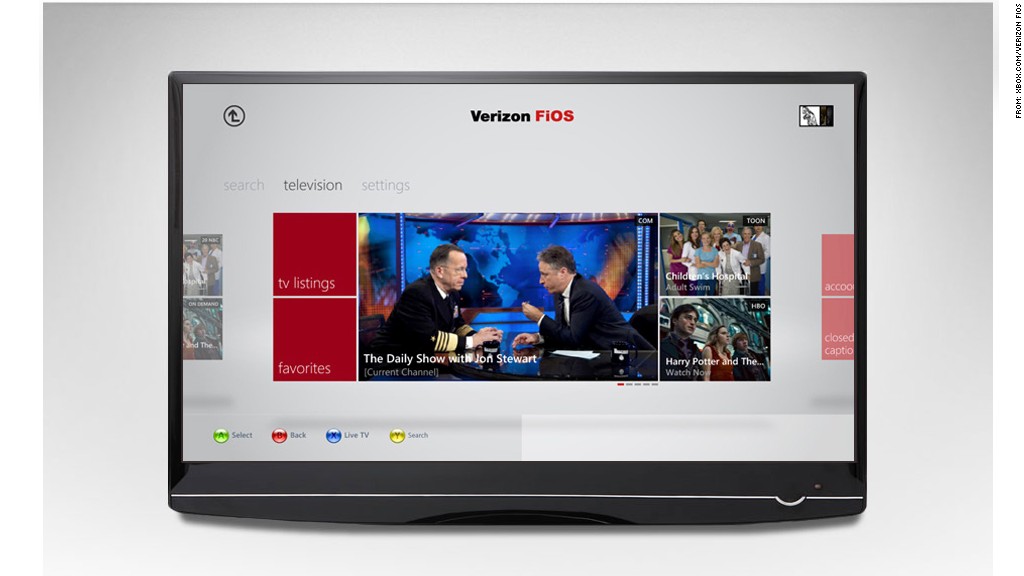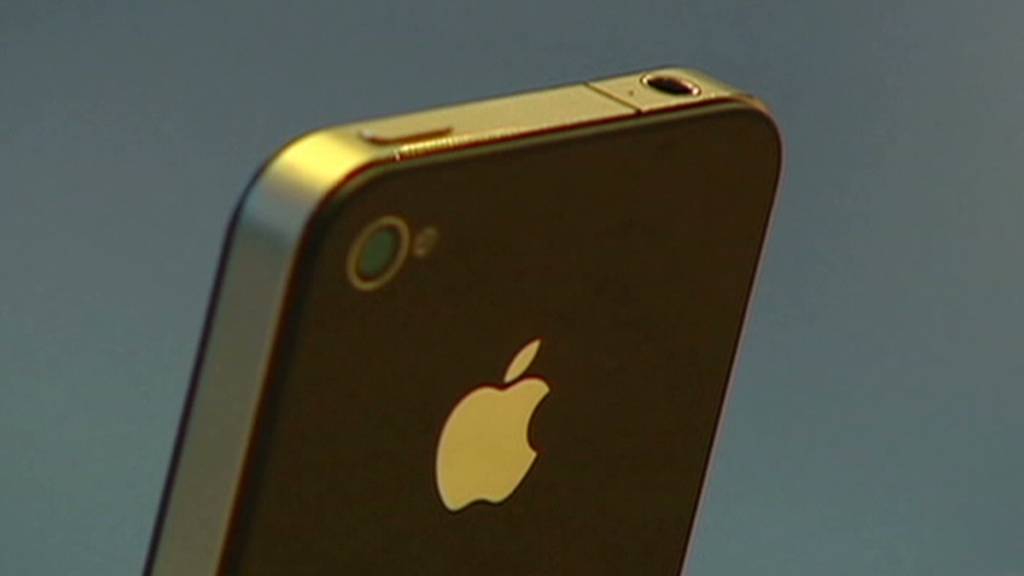
If you're longing impatiently for the much-hyped features of Apple's rumored new TV, you don't have to wait. They're already here.
Microsoft's Xbox Live service already does what Apple is reportedly negotiating with the cable companies to pull off. The video game system streams live television directly through its own console, pairing cable content with a much-improved user interface and third-party apps like Netflix (NFLX) and Hulu.
Cementing partnerships 10 months ago with Verizon (VZ) FiOS, AT&T's (T) U-Verse and, to a more limited extent, Comcast (CMCSA), helped Microsoft build on its already sizable lead in the living room. The company has 40 million Xbox Live customers, while Apple has sold fewer than 10 million Apple TVs.
Microsoft (MSFT) got a jump on Apple (AAPL) by doing something very un-Microsoft or Apple-like: playing nice.
"Microsoft has been a more conciliatory partner from the beginning," says James McQuivey, a media analyst at Forrester Research. "Apple, on the other hand, has long made it clear that it values its own customer relationship above any other company's."

Apple typically takes a 30% cut of digital content and apps purchased on its devices, and it's asking for the same deal with its next-generation Apple TV set-top box, according to a recent Wall Street Journal report. That means cable companies would suddenly need to turn over a big chunk of their movie and pay-per-view sales to Tim Cook & Co.
Apple has historically been unafraid to disrupt its own partners' services and revenue streams. For example, its built-in iMessage app for the iPhone often bypasses carrier text messages, and the 99-cent songs Apple sells on iTunes severely cut into album sales.
Related story: Why Apple hasn't cracked the TV market
With Xbox Live, Microsoft hasn't tried to outshine its partners.
Pretty much everyone agrees that the standard cable user interface is outdated and clunky. Microsoft essentially positioned Xbox Live as a way for cable providers to upgrade their user experience without investing any of their own money in new technology or software.
Microsoft did much of the development for the companies' Xbox apps, but it ultimately allowed the carriers to decide what content would appear in their respective apps. The software giant worked closely with its cable partners to ensure that the Xbox experience would extend -- but not replace -- their relationships with their customers.
The result, naturally, is incomplete. Only certain channels are available on Xbox Live, since some media companies have held back their offerings. Content owners' deals with cable companies only go as far as the cable box, and any other use of their content needs to be negotiated separately.
Also, Microsoft hasn't yet come to terms with most of the biggest cable providers. Comcast, the nation's largest cable company, only allows its viewers to watch on-demand content -- not live TV -- on the Xbox.
Those are the gaps that make the TV experience so frustrating for users -- and they're the kinds of compromises that Apple hates making.
Apple is famously good at winning over skeptical partners, but McQuivey thinks this time it might be outmatched.
There are billions of dollars tied up in content deals that make it "unthinkable" for cable carriers to "dump the existing distribution system and simply hope that siding with Apple will work out for them in the long run," he says. "You can bet that if a deal is as forthcoming, as is being rumored, it's because Apple has moved toward the cable companies in its stance, not the other way around."

